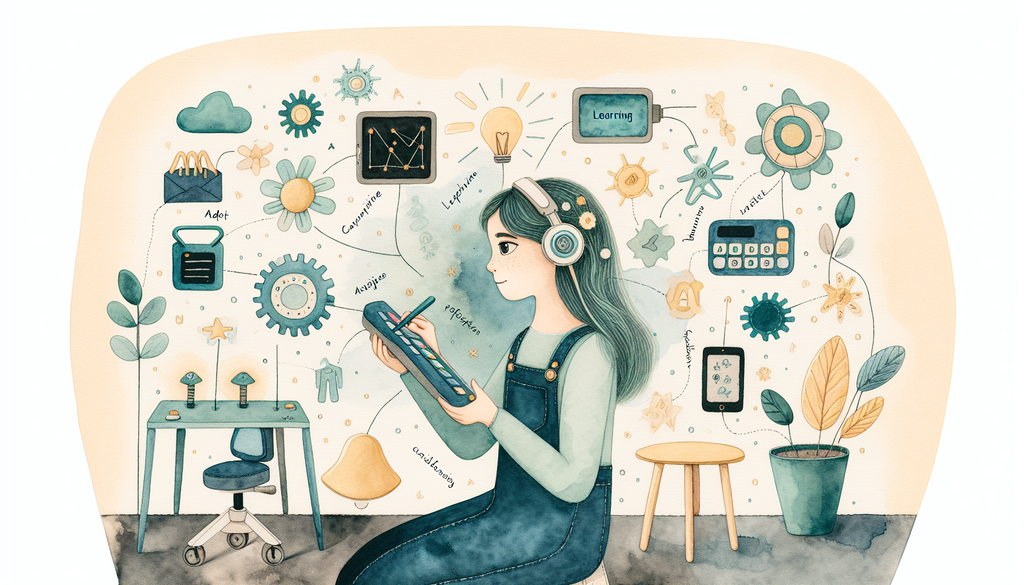Adaptive Assistive Technology: Custom Solutions for Unique Learners

As an education expert specializing in gifted and special education, I understand that every child has unique learning styles and needs. How then can educators and parents ensure that technology—the new powerhouse of educational resources and tools—caters to such individuality, especially for students who may have special needs and for those identified as gifted and talented students? This is where adaptive assistive technology comes in.
Adaptive assistive technology is an educational approach designed to provide children with learning disabilities, physical impairments, and other special needs with tools that allow them to learn more effectively. But that’s not all! They equally empower gifted students by fostering an intellectually stimulating setting where they can express their full potential.
So, Why Adaptive Assistive Technology?
Customizability is a key part of adaptive assistive technology. Customized technology-based resources, such as software applications, hardware devices, and online platforms, can be tailored to fit a child’s individual learning needs. They serve to facilitate and enhance everything from basic communication to the learning of complex academic skills. It is indeed a tool that fosters independence and encourages academic success {The World of Augmentative and Alternative Communication}.
A child with low vision, for instance, can use technology with screen-reading capabilities to read educational content on computers or tablets. More so, gifted students who have already mastered a topic can equally use technology to access a wealth of more challenging materials and forays into more advanced topics.
Just as the name implies, adaptive assistive technology adapts to the user, providing each child with the necessary tools for success.
Harnessing the Magic of Adaptive Assistive Technology
Indeed, embracing adaptive assistive technology makes a big difference. However, it starts by understanding your child’s strengths, weaknesses, and learning style to eventually leverage them. Parents and educators must also stay informed about the available tools and how they might fulfill their child’s specific needs. Below are some steps on how to effectively achieve this:
Assessment
For adaptive assistive technology to be effective, it must address a child’s particular needs. Thus, educators must provide assessments to identify what these needs may be. These assessments could range from observation in the classroom to standardized tests, and they can identify everything from physical and learning disabilities to instances of academic giftedness.
Research
Once you understand the child’s needs, it’s time to research available tools and options. Numerous online platforms offer reviews of assistive technology. Similarly, schools often have resources or specialists who can make recommendations. More information about such tools can be found in our post, Assistive Devices and Technology for Visual Impairments in Education.
Trial and Error
Once a tool is chosen, it’s essential to experiment with its use and gauge its effectiveness. Remember that what works for one child may not work for another. Remain patient and flexible in this learning process.
Remember - It’s a Journey
The World of adaptive assistive technology is ever-evolving, and it’s okay not to have all the answers right away. It’s a journey, not a race. Ultimately, the goal is to enhance a student’s learning experience and to equip them with the tools for success.
Remember - You Are Not Alone
Whether your child needs assistive technology due to a disability or benefits from advanced resources due to giftedness, the journey might feel overwhelming. Yet, remember, there is support available to you. There are numerous online communities and support groups where parents can share experiences and advice. Additionally, resources from both teachers and specialized therapists can be invaluable in these circumstances, as we discussed in Navigating the Therapeutic Journey: A Guide for Parents.
In conclusion, adaptive assistive technology is an extraordinary resource offering custom solutions for unique learners. It not only paves the way for a more inclusive classroom but also champions individuality, independence, and overall educational success. In the end, it’s all about ensuring that every child gets the education they need to reach their full potential.
Next week, I’ll be discussing how to nurture creativity and talent in gifted children with special guest, a renowned child psychologist. In the meantime, feel free to visit our other posts on recognizing and cultivating artistic talent in young children and enhancing communication at home. Stay tuned!